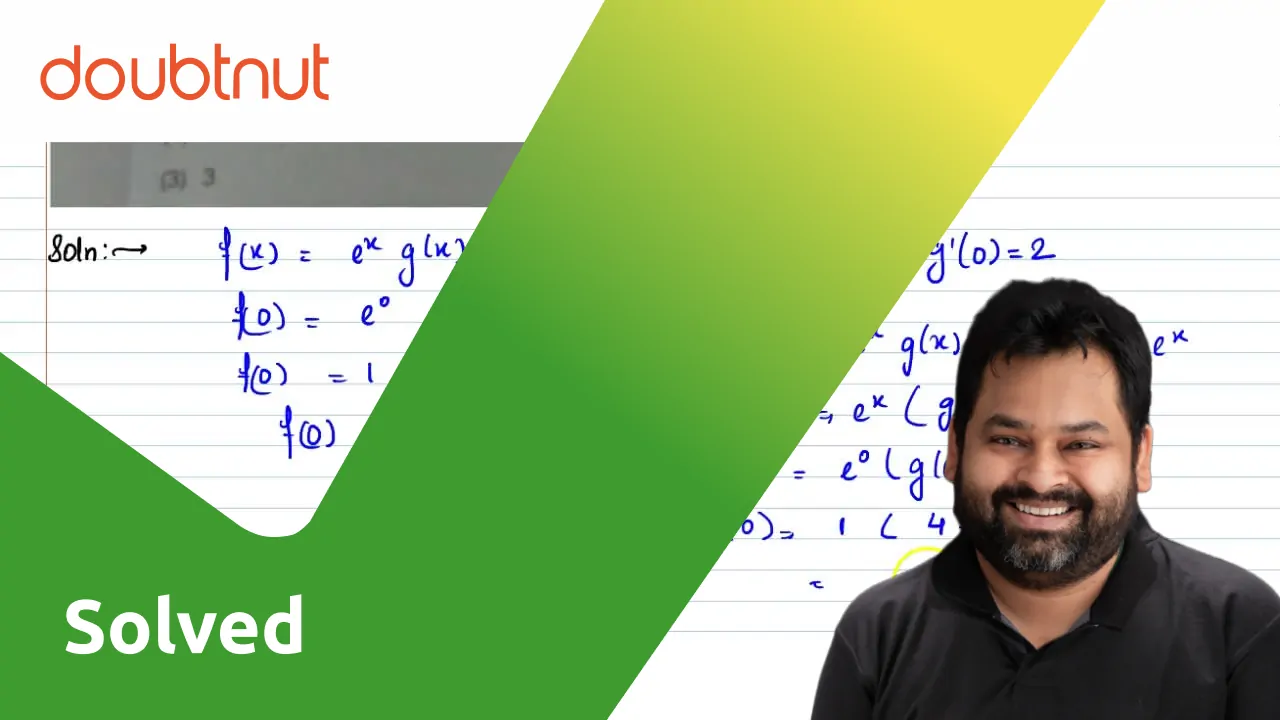Let f(x)=exg(x), g(0) = 4 and g'(0) =2, then f'(0) equals
Video Solution
Answer
Step by step video & image solution for Let f(x) = e^x g(x), g(0) = 4 and g'(0) =2, then f'(0) equals by Maths experts to help you in doubts & scoring excellent marks in Class 11 exams.
Updated on:21/07/2023
Similar Questions
যদি f(x)=exg(x),g(0)=6,g'(0)=2 হয়, তবে f'(0) হয়-
01:17View SolutionLet f and g be continuous fuctions on [0, a] such that f(x)=f(a−x) and g(x)+g(a−x)=4 then ∫a0f(x)g(x)dx is equal to
03:47View SolutionIf f(x)=e^(x)g(x),g(0)=2,g'(0)=1 So f '(0) is
01:19View SolutionSuppose that f(0) = 0 and f'(0) = 2 and let g(x) = f(-xf(f(x))). The value of g'(0) is equal to ........
02:33View SolutionIf f(x)=exg(2x),g(0)=4 and g'(0) = 2 then f'(0) is equal to
02:20View SolutionIf f(x)=ex.g(x),g(0)=4 and g′(0)=2, then f^(')(0) =
Text SolutionView SolutionIf f(x)=exg(x),g(0)=2,g'(0)=1,thenf'(0) is
02:36View SolutionLet f(x)=exg(x),g(0)=2 and g(0)=1, then find f'(0) .
02:25View Solution
